Table of Contents (click to expand)
Audio feedback occurs when the microphone picks up the output sound from the speakers and then sends it back to the speakers to re-amplify it, kick-starting an endless loop unless interfered with externally.
In a great fit of inspiration, you took a bold step and signed up for the open-mic competition! The contest has started, and there’s some guy on stage talking about something that makes absolutely no sense to you because you’re too freaked out to pay attention. Then, they announce your name and it’s your turn to randomly pick a topic from a bowl and take the stage.
“Good morning, everyone! Today I…”
SCREEEEEEECCCH! A high-pitched squeal erupts from the mic and fills the auditorium; your heart almost jumps into your mouth. ‘What in the world was that noise?’ you think to yourself as your face begins to flush a deep shade of red.
That was not some stupid prank from a friend to add to your anxiety; instead, it’s a very common and almost equally undesirable phenomenon associated with mics and speakers.
What Is An Audio Feedback?
The scenario we imagined above is a typical example of audio feedback. Also referred to as ‘acoustic feedback’, the Larsen Effect or simply ‘feedback’, audio feedback is that high-pitched squeal you occasionally hear when you speak on a microphone. That ‘squeal’ is a special type of positive feedback (when A produces more of B, which in turn produces even more of A) that occurs due to the presence of a sound loop between an audio output and an audio input.
To put it in simple words, feedback is a high-pitched sound that comes out of speakers when something about the arrangement or the calibration of the audio system is not suitable for the desired setting.
Also Read: Why Do Voices Sound Squeaky When They’re Sped Up?
Why Does Audio Feedback Occur?
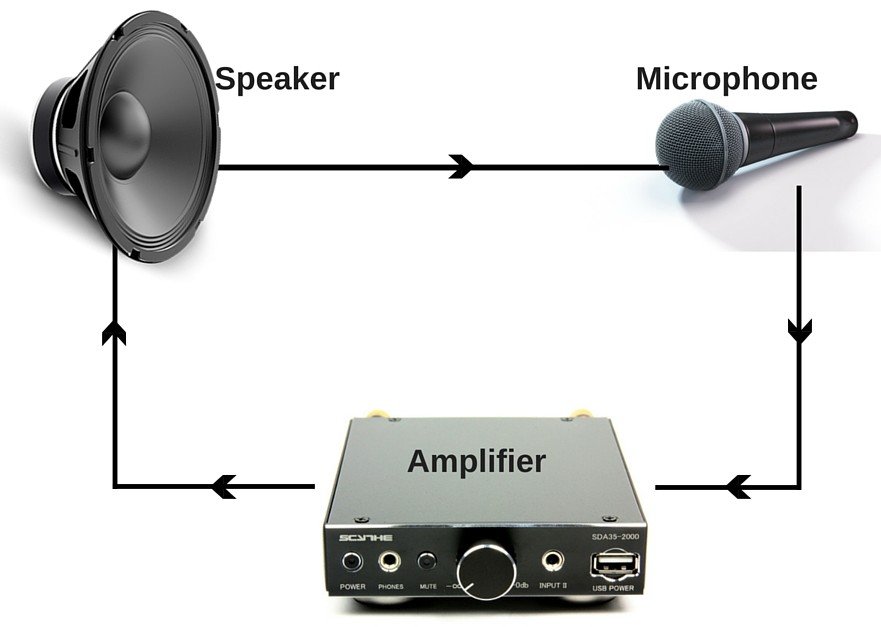
A typical audio system (like a Public Address system or the audio system used by bands) consists of three essential components: a microphone, a speaker and an amplifier. Wherever all three of these components are present, there it the potential for feedback. The reason is simple; feedback occurs when the microphone picks up the output sound from the speakers and then sends it back to the speakers to re-amplify it, kick-starting an endless loop unless interfered with externally.
To understand it better, let’s have a brief look at how typical audio system works.
When you speak in front of a large audience, you obviously have to be loud enough to be audible to everyone present. Sure, you can shout to be loud enough, but that’s not what I, or anyone else (including your doctor), would recommend.
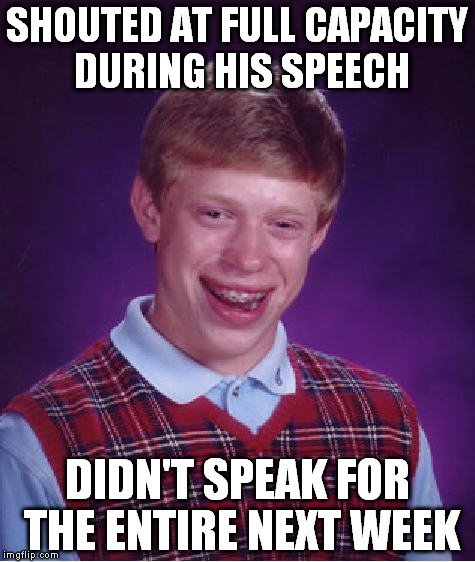
Therefore, you speak into a microphone (or simply, a mic). The mic transmits your voice to another device, known as an amplifier, which enhances the amplitude of the signals that it received from the mic. These ‘amplified’ signals are then sent to the speakers (audio output), where electrical signals are converted into sound and subsequently discharged to the audience.
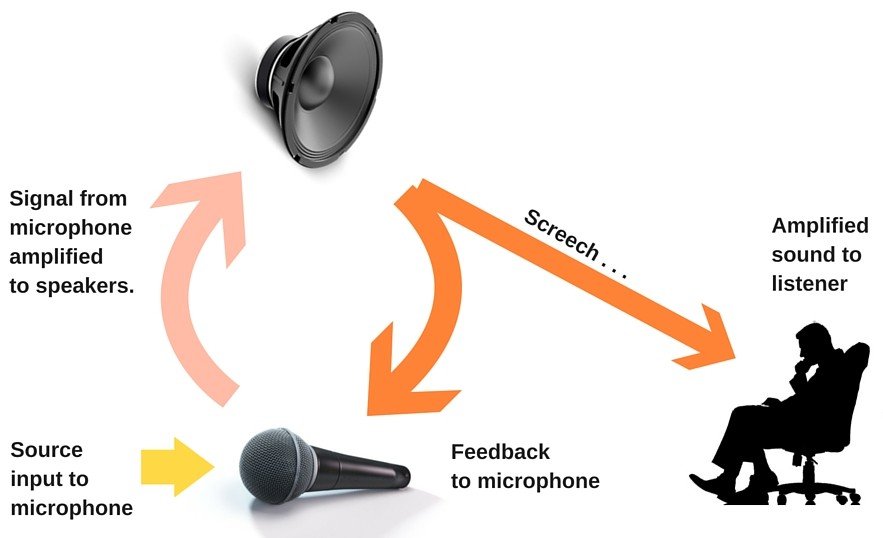
However, if the sound discharged from the speakers somehow reaches back to the mic (which ideally shouldn’t happen), the process discussed above kick-starts again, i.e., the mic transmits sound to the amplifier, which then transmits to the speaker, and back to the mic… and then this goes on and on. The result is that you hear a high-pitched squeal, which gets louder and louder (due to the reinforced amplitude as a result of multiple rounds of amplification) until it is corrected.
How Can You Avoid Audio Feedback?
The most important thing you must do to avoid feedback is to distance the mic from the speaker as far as practically possible, and position these devices in a way so that the mic doesn’t catch the sound coming out of the speaker too directly. This is why in public addresses or musical shows, the microphone is usually not set facing the speakers. Instead, the mic is brought out in the front, usually in the middle of the left and right speakers, which are kept at the two forward corners of the stage.
Many times during formal addresses, there is a particularly loud and sharp howl that makes everyone squint their eyes or put their hands around their ears. This is because the speaker in question either speaks too softly or is standing too far away from the mic. Consequently, the sound operator has to increase the ‘volume gain’ (thereby increasing the sensitivity of the mic) of the system to make the orator audible to the audience.
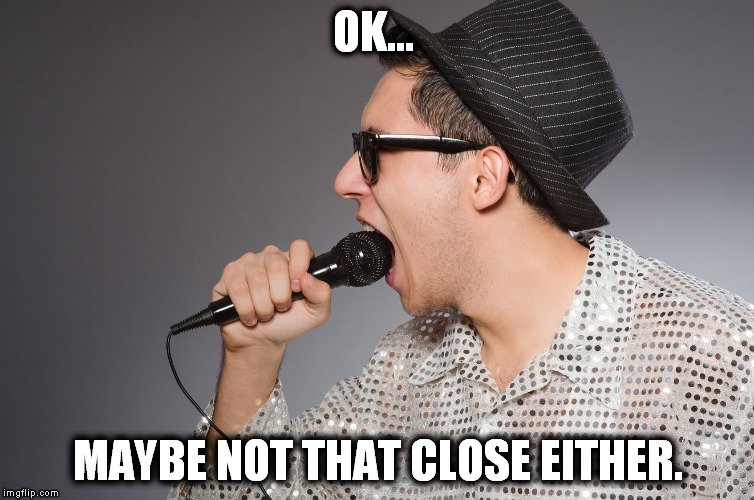
Therefore, it is recommended to hold the mic no more than an inch or two away from one’s mouth, so that the mic doesn’t have to work extra hard to capture the sound of one’s voice.
Also Read: Why Do Singers And Actors Use Headphones In The Recording Studio?
Not That Bad!
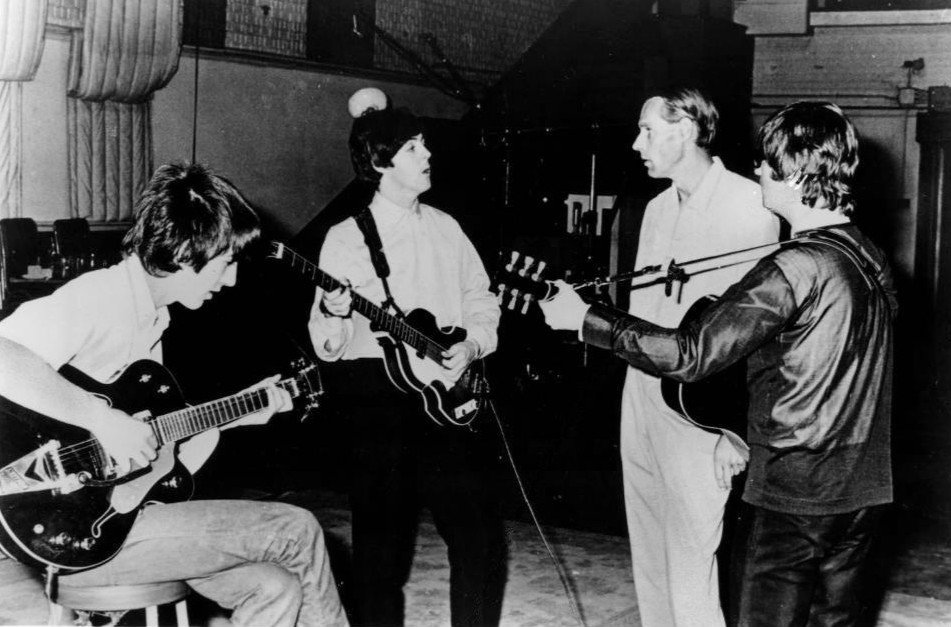
Audio feedback is not always a nuisance; in fact, it’s pretty desirable in certain situations. Since the 1960s, electric guitar players have been using this otherwise annoying phenomenon to create incredible distortion effects that add to the overall music quality. Many popular artists and bands (including Canned Heat, the Beatles, the Who, The Smashing Pumpkins and Rage Against the Machine) have used feedback in some form or other in some of their songs.
See? Sometimes things aren’t actually as bad and annoying as they may initially seem!
Test how well do you understand the audio feedback

